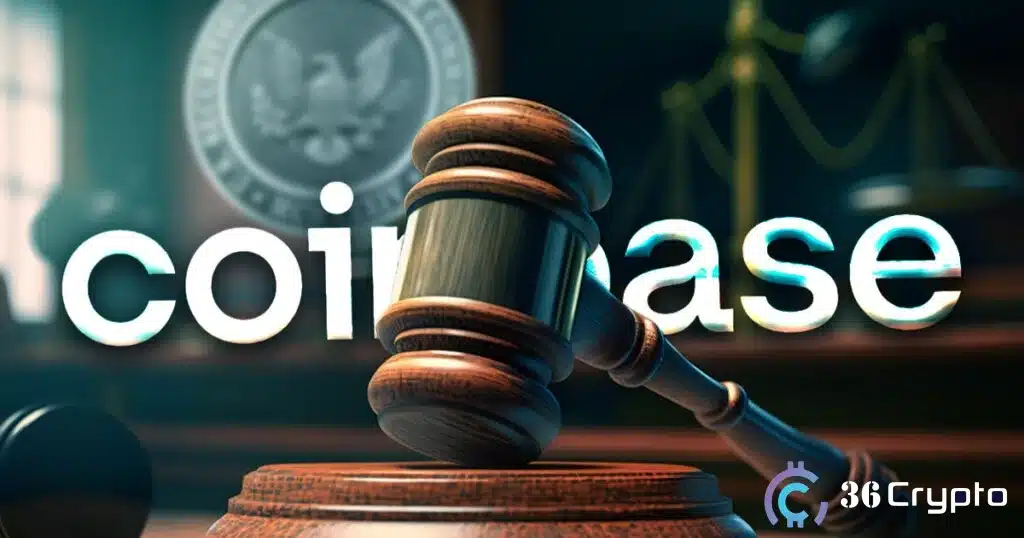Last updated on June 29th, 2024 at 08:28 am
Coinbase has initiated a legal battle against the U.S. Securities and Exchange Commission (SEC) and the Federal Deposit Insurance Commission (FDIC) in a significant escalation within the cryptocurrency sector. This lawsuit accuses these pivotal regulatory bodies of systematically marginalizing crypto companies from the traditional financial system.
Some of Coinbase’s legal interactions depict these regulators as applying excessive pressure on banks to refrain from transacting with crypto sector entities. Coinbase accuses PayPal of furthering this process to distance the digital asset industry from needed banking services. Paul Grewal, Coinbase’s Chief Legal Officer, stated his frustrations regarding the actions of the regulators on social media platform X, indicating that the regulators do not offer any form of cohesive guideline to base the sector.
Read Also: SEC Files Lawsuit Against Consensys, Citing Unregistered Security Operations
Regulatory Challenges and Coinbase’s Struggle for Clarity
Grewal pointed out that the SEC’s approach has been particularly perplexing, with the agency claiming broad authority yet failing to establish transparent guidelines. The agency has often assumed enhanced authority only to provide little or no clear rules to apply. He notes that ambiguity of laws disables firms such as Coinbase from maneuvering in the legal structure with confidence and requite. The Chief Legal Officer also provided a concrete complaint over unserved demands for information that included requests concerning the recent closure of the Ethereum securities case by the SEC. Grewal mentioned a previous instance involving Custodia Bank and the Federal Reserve, where the FDIC denied a crucial banking application. This denial has had deep consequences, especially regarding the core banking services offered by Custodia Bank to its customers.
Moreover, the lawsuit was also brought against the FDIC for not following the FOIA rule to release any correspondence they sent to the various financial institutions that guided them to suspend cryptocurrency-related operations temporarily. This action was later deemed by the FDIC’s director of the Office of Inspector General as possibly detrimental to the innovation and development of the cryptocurrency market.
This legal battle contributes to an already somewhat hostile Coinbase-SEC dynamic in addition to other ongoing cases involving trading securities tokens on Coinbase’s marketplace. Following this, legal drama might establish crucial precedents for the relationship between the national and supranational regulators and the emerging digital assets industry. The verdict can affect not only the future liberties of those businesses in their operations but also the future guidelines of cryptocurrencies in the United States. This case presents a decisive stage in the discussion of the roles and utilization of cryptocurrencies, their incorporation into the global financial system, and the circumstances that will dictate them.
Read Also: US Government’s Strategic Bitcoin Movement to Coinbase Sparks Market Speculation
